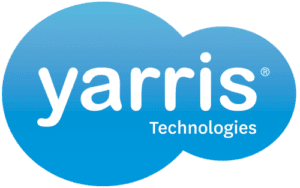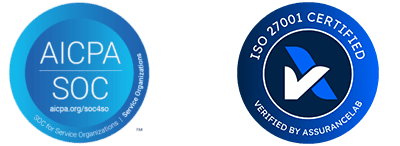The compelling case for legal process automation
What is legal process automation?
Legal process automation refers to the use of technology to streamline and automate routine legal tasks traditionally performed by lawyers. This includes processes such as document drafting, contract review, compliance monitoring, and legal research.
Legal process automation can be a game-changer for legal departments, law firms, and businesses dealing with compliance-heavy or repetitive legal work.
By automating repetitive and time-consuming tasks, lawyers can focus on more complex and strategic aspects of their work, enhancing overall efficiency and accuracy.
The Dazychain team’s goal is to help you introduce legal process automation without the pain. We focus on guiding you through the change management, assisting you in each part of the process to make sure you’ll be successful.
Here are some of the compelling reasons to embrace legal process automation.
The human reasons to embrace legal process automation
Reduce burnout and create peace of mind
In fast-paced or high-risk situations, automated workflows offer stability and assurance. Everything is in one place. You can find your matter, retrieve it, reuse it, and report on it. That means no more sleepless nights wondering if something slipped through the cracks.
Less firefighting, more strategy
Free your team from the repetitive, low-value grunt work so they can contribute to high-impact, meaningful initiatives, boosting morale and improving retention. Attract and retain forward-thinking legal talent. Lead and work with a tech-savvy, future-ready legal team.
Business/operational reasons to embrace legal process automation
Do more with less
GCs are under constant pressure to reduce spend while supporting growing business needs. Automation enables your team to deliver faster, better legal services without increasing the headcount or budget.
Faster turnaround, happier stakeholders
Whether it’s sales waiting on contracts or business heads needing product disclosure approvals, automation reduces legal bottlenecks, improving satisfaction across the business.
Make legal a business enabler, not a bottleneck
Automation empowers commercial teams to self-serve low-risk legal needs like NDAs or standard low-value contracts, so legal teams can focus on strategic issues, potentially lowering costs on outside counsel.
Real-time visibility and reporting
See what’s in flight, where things are stuck, and where the legal team is adding the most value with automated reporting.
What is an intake form?
A Legal Intake Form is a structured briefing tool that provides key matter briefing details to the legal team. This form is generally accessed by a link on the intranet, shared inbox message or signature block.
The form asks different questions based on the type of support your internal team member is requesting. For example, contract start dates and values, or litigation-focused questions.
The intake form automatically creates a matter in Dazychain, then allocates the matter to the appropriate member of the team to manage the matter.
Dazychain users can report on the number of intake matters, and can extend the matter to a contract or advice if the matter progresses beyond a non-disclosure agreement, for example.
Why should you use intake forms?
Intake forms streamline communication, reduce delays, mitigate risks, and enable the legal team to deliver faster, more effective guidance, helping the business move forward with confidence.
The intake form functions like a briefing document, requesting all of the required information and enabling users to share all applicable documents and emails.
Intake forms can be directed to a group, folder or person to provide automated triage.
The benefits of intake forms include:
- Efficiency and speed
Structured intake forms prevent endless back-and-forth by capturing key details upfront, enabling legal teams to act quickly and decisively. - Clarity and accuracy
A standardized process reduces misunderstandings, ensuring legal gets the right context, facts, and priorities from the start, creating a matter automatically for the legal team to access instantaneously. - Risk reduction
Missing details can lead to costly mistakes; intake forms help identify potential risks early, safeguarding the business. Users are requested to answer specific questions that are then passed over to the matter, reducing or even eliminating data entry. - Stronger collaboration
Legal teams are seen as enablers, not blockers, when they receive well-structured requests that allow them to provide timely, actionable advice. - Scalability and consistency
As companies grow, intake forms create a repeatable, reliable process that supports expansion without chaos.
Beyond logic, it’s about respect for everyone’s time, expertise, and shared goals. A streamlined intake process empowers legal to be a true business partner, driving success instead of slowing it down. It also enables the legal team to focus on strategic activities, rather than administrative follow-up.
What is legal self-service?
Legal self-service empowers your internal teams to generate, review, and execute their own routine legal documents, like NDAs and smaller contracts, through an automated, compliant, and user-friendly system, without waiting for legal intervention.
Why should you use legal use self-service?
- Quick turnaround times
Instantly access pre-approved legal templates, reducing bottlenecks and freeing up legal teams for strategic work. - Consistency and compliance
Ensure every document meets company standards, minimizing risk while maintaining control. A matter record is created to ensure accountability and reusability if the self-service request goes on to become a matter later. - Cost savings and productivity
Cut legal costs and reduce reliance on external counsel by enabling your internal teams to handle routine tasks independently within established guidelines. - Empowerment and agility
Business teams move faster, close deals sooner, with a focus on business growth, rather than waiting for approvals. - Stronger partnerships between the legal and business teams
Legal is seen as an enabler, not a blocker, fostering trust and collaboration across the organization.
By embracing legal self-service, companies unlock speed, efficiency, and business agility, while ensuring legal oversight where it matters.









